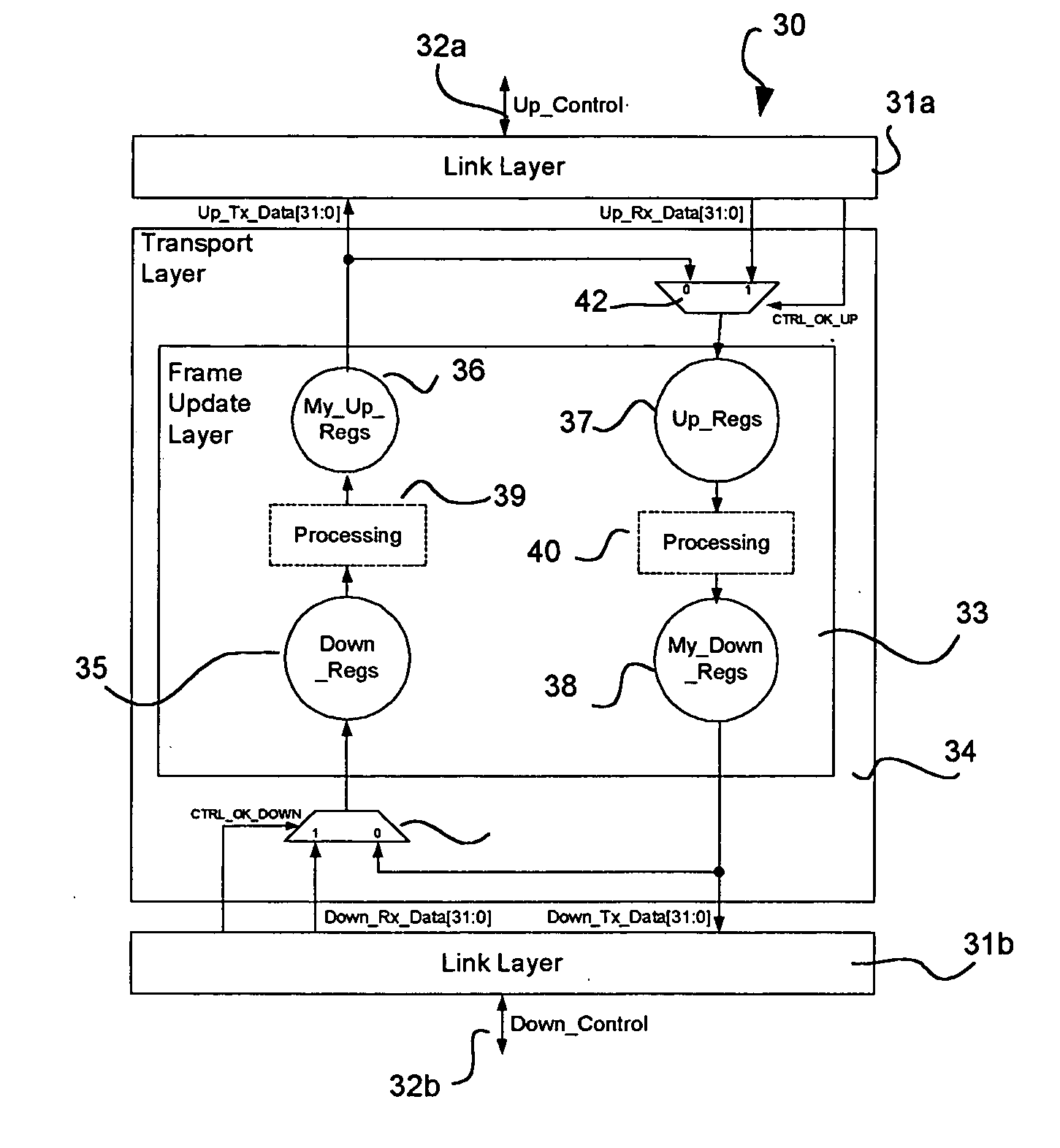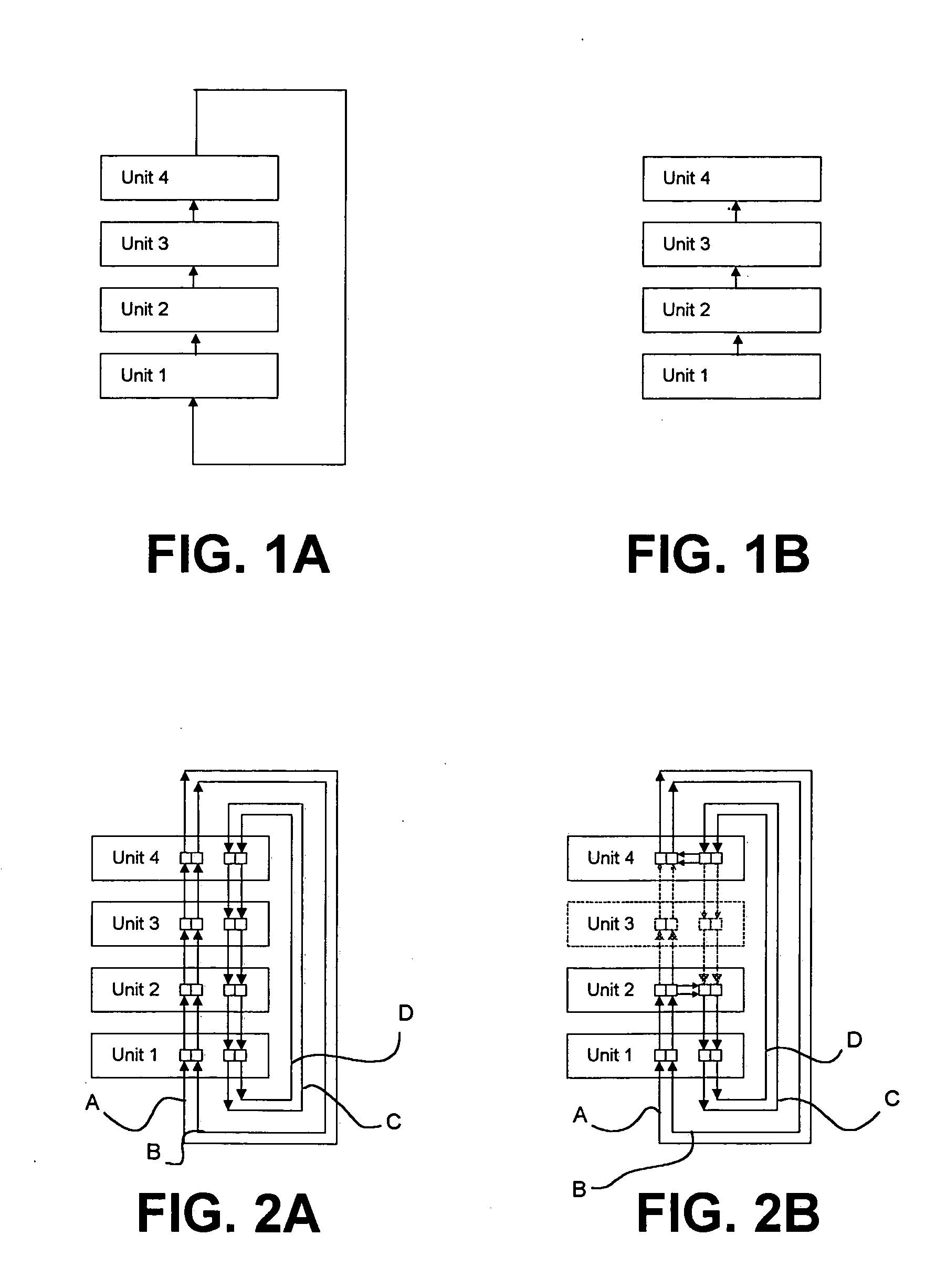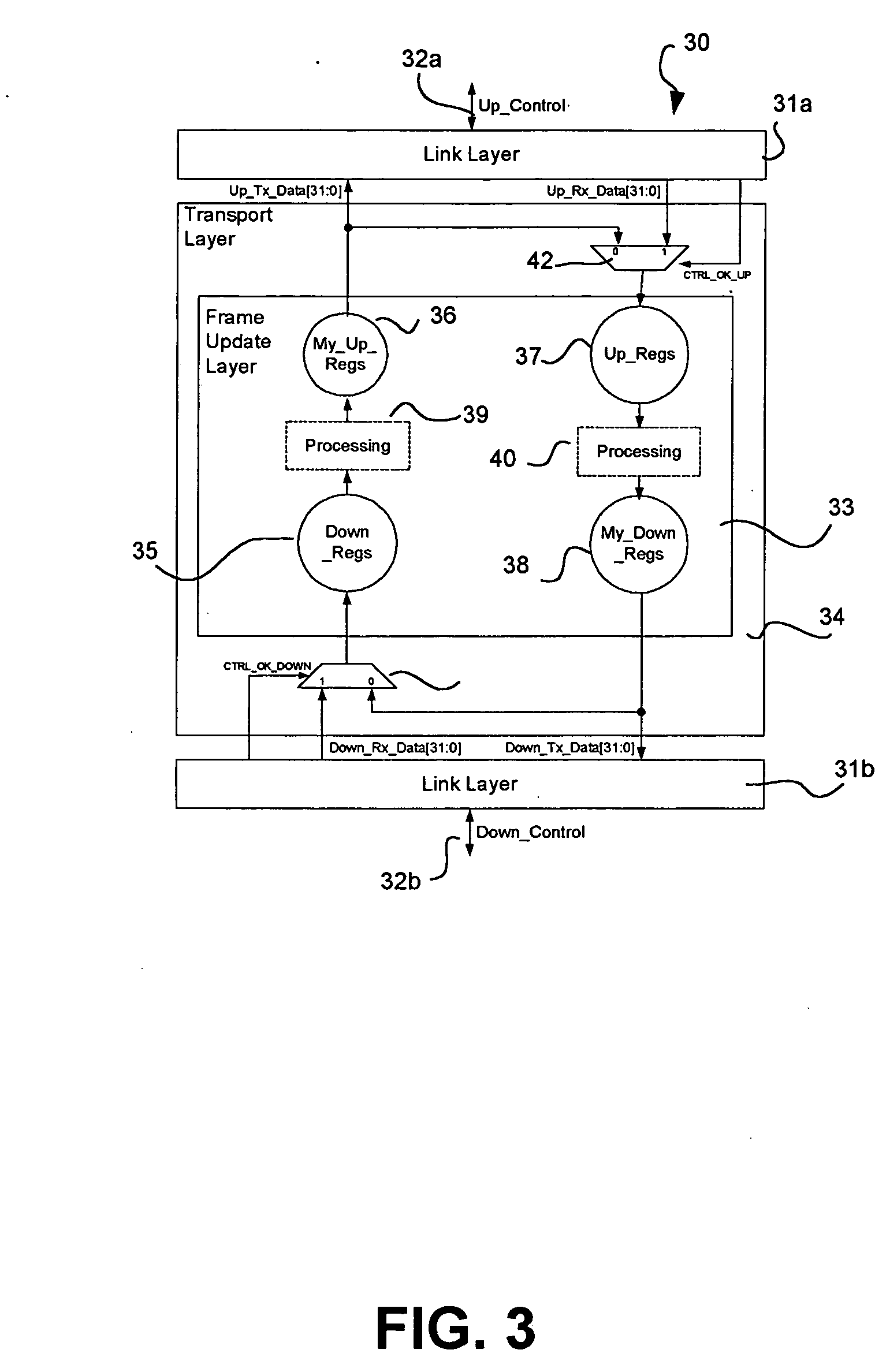Cascade control system for network units
a network unit and control system technology, applied in the field of communication networks, can solve the problems of increasing design difficulties, affecting the design and organisation of cascades, and affecting the design of cascades, so as to achieve the effect of improving and versatile cascade control
- Summary
- Abstract
- Description
- Claims
- Application Information
AI Technical Summary
Benefits of technology
Problems solved by technology
Method used
Image
Examples
examples
[0351]FIG. 27A illustrates a resilient stack with three units in manual assigned mode, numbered 1, 7 and 8 being denoted M1 etc to indicate the mode as well as the number. Now four ‘factory-default’ units AD (all in ‘automatic-assigned’ mode) are added into the resilient stack. The new stack is shown in FIG. 27B. It has mixed manual and automatic assignment modes. This is determined by the software from the stored indications of the mode. The fabric will remain in the manual-assigned mode and the four new units are isolated from the rest of the stack, as shown by the strike-through indications in FIG. 27C.
[0352]FIG. 28A illustrates a stack with five units in manual-assigned mode and numbered 1, 7, 8, 3 and 2. FIG. 28B shows the addition of three units in manual-assigned mode and numbered M8, M5 and M5 (a duplication of numbering). The unit with the lowest MAC address (the furthest right) is shaded. Owing to the ‘manual-assigned’ mode of the two duplicated numbers the software canno...
PUM
 Login to View More
Login to View More Abstract
Description
Claims
Application Information
 Login to View More
Login to View More - R&D
- Intellectual Property
- Life Sciences
- Materials
- Tech Scout
- Unparalleled Data Quality
- Higher Quality Content
- 60% Fewer Hallucinations
Browse by: Latest US Patents, China's latest patents, Technical Efficacy Thesaurus, Application Domain, Technology Topic, Popular Technical Reports.
© 2025 PatSnap. All rights reserved.Legal|Privacy policy|Modern Slavery Act Transparency Statement|Sitemap|About US| Contact US: help@patsnap.com



